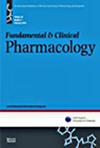Capivasertib augments chemotherapy via Akt inhibition in preclinical small cell lung cancer models
Abstract
Background
Small cell lung cancer (SCLC) is a highly aggressive type of lung cancer for which platinum-based chemotherapy is the standard of care. Despite an initial response to this therapy, patients eventually develop resistance to the chemotherapy.
Objectives
To investigate the potential of capivasertib, an approved drug for advanced breast cancer, to enhance the efficacy of cisplatin in preclinical SCLC models and explore the underlying mechanisms.
Methods
SCLC cell lines were treated with capivasertib and cisplatin, alone or in combination, to assess cell viability, proliferation, colony formation, and apoptosis. Next, capivasertib's effects, alone and combined with cisplatin, were evaluated in an SCLC mouse model. Mechanistic studies focused on Akt and MYC signaling, with constitutively active Akt overexpression used to assess its role.
Results
Capivasertib is active against a panel of SCLC cell lines regardless of cellular origin and genetic profiling with IC50 at a clinically achievable range. Particularly, capivasertib inhibits proliferation and anchorage-independent colony formation and induces apoptosis in SCLC cells. It significantly augments cisplatin's inhibitory effects in all tested cell lines. Importantly, capivasertib at a non-toxic dose is effective in delaying SCLC growth in mice and its combination with cisplatin achieves nearly complete tumor growth inhibition. Mechanistic studies confirm that capivasertib inhibits Akt and MYC signaling, and furthermore, that overexpression of constitutively active Akt reversed anti-SCLC activity of capivasertib.
Conclusion
Our work is the first to reveal that Akt inhibition can augment chemotherapy in SCLC, and capivasertib is a useful addition to the treatment armamentarium for SCLC.

 求助内容:
求助内容: 应助结果提醒方式:
应助结果提醒方式:


